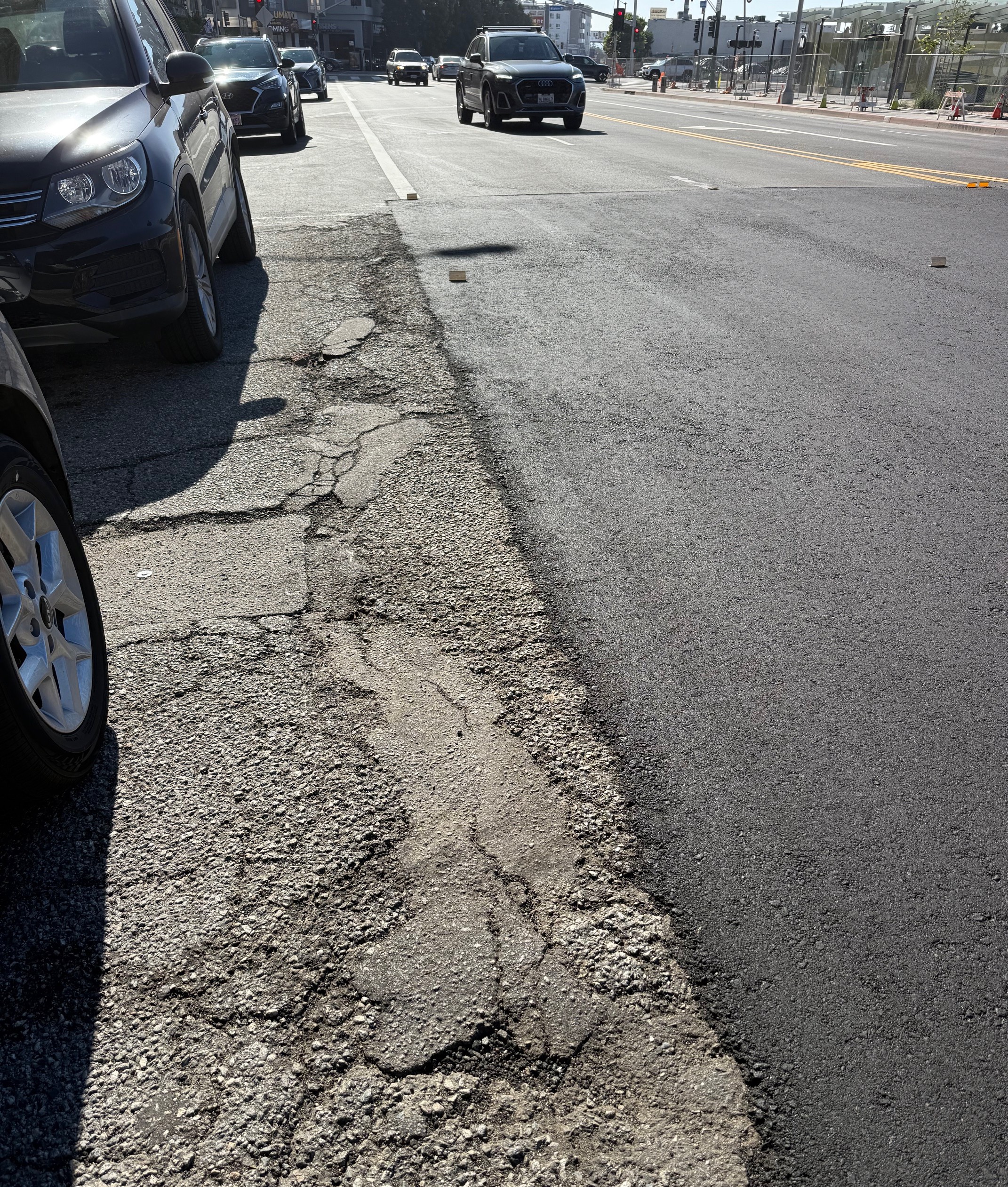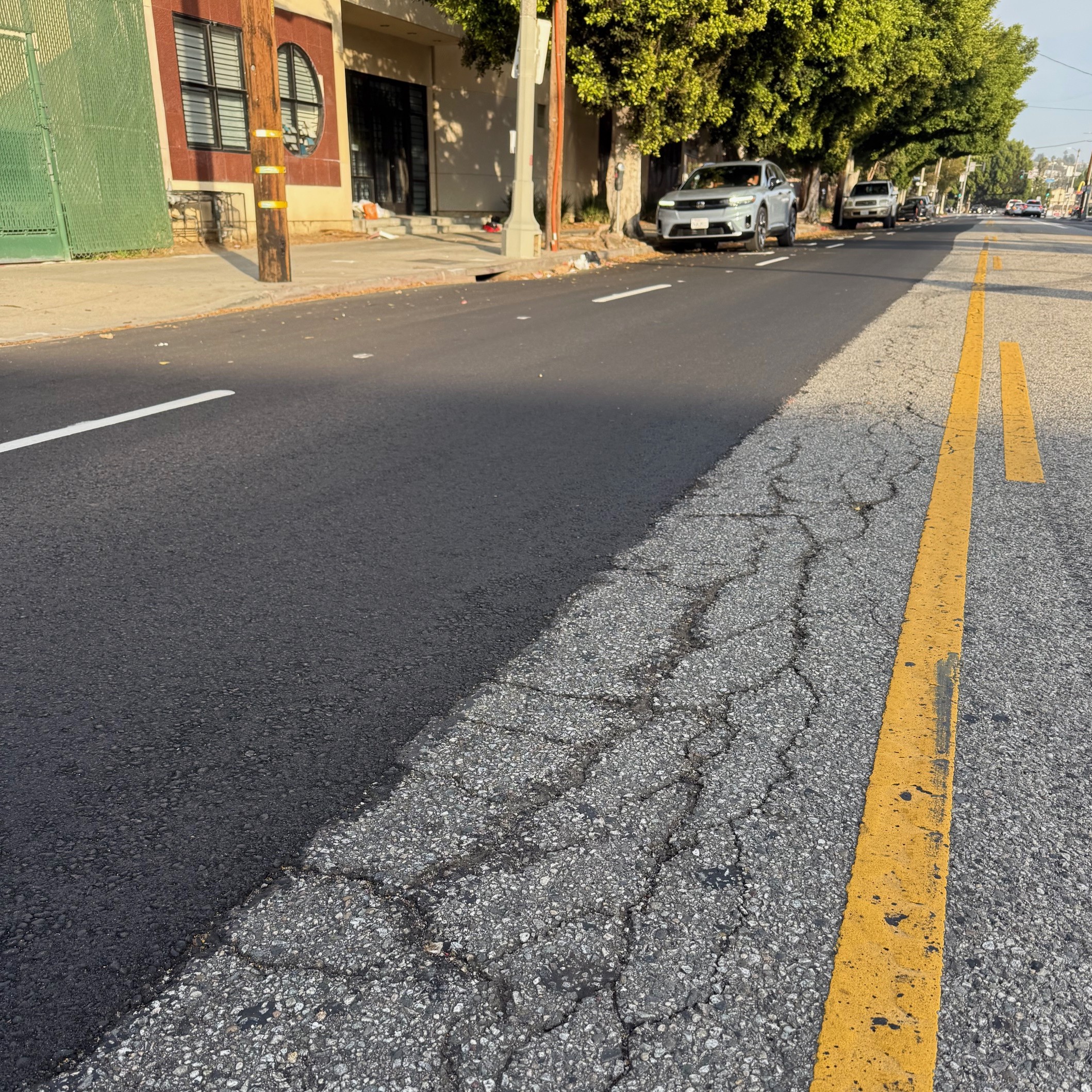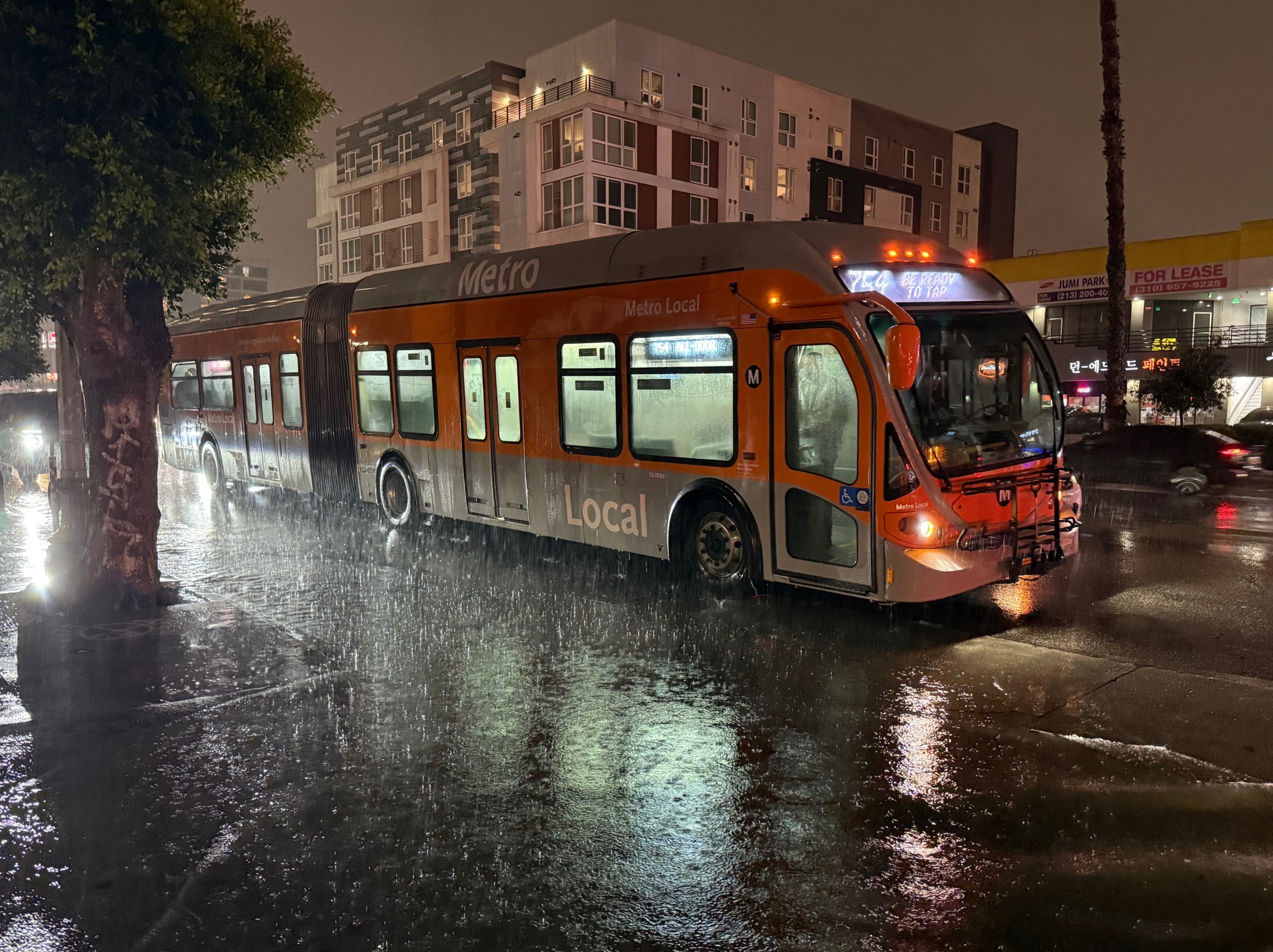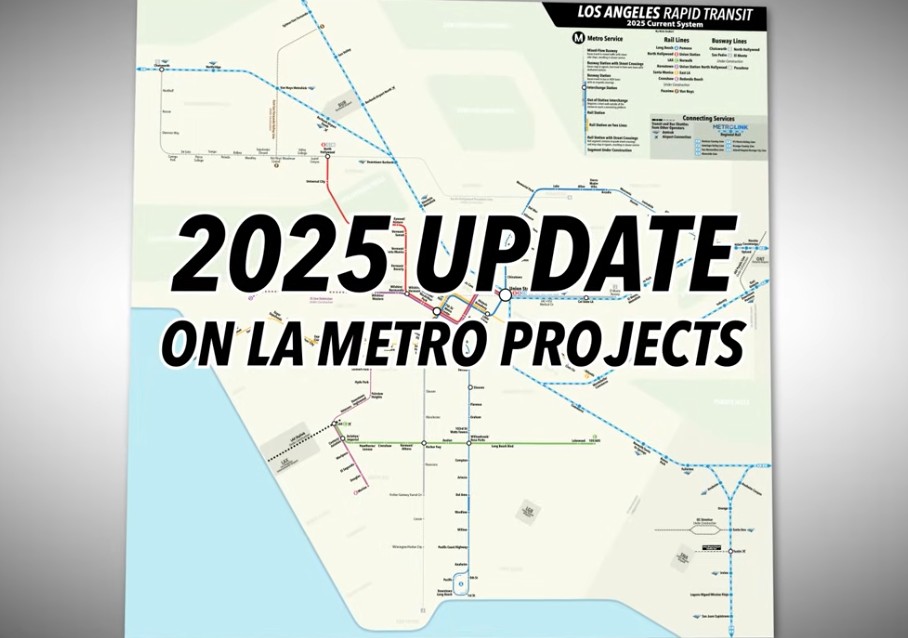Last night over 60 residents of West Hollywood and other Westside Cities congregated to give Metro feedback on its Draft Long Term Master Plan. Among the attendees were two West Hollywood City Council Members, Mayor Pro Tempore Jeffery Prang, and a staff member representing the local Assemblyman, Mike Feuer.
The 20 people that testified were near unanimous in supporting more rail for L.A. County. There was also strong support for a Subway to the Sea alignment that runs along Santa Monica Boulevard. There was one audience member, an Angeleno that lives in Park-LaBrea, who argued that more money needs to be spent on improving the bus system because subway expansion is a losing proposition.
Despite the disparity in funding priorities in the long range plan, people were more interested in seeing better bikeways and sidewalks connecting people to transit and centers of place than they were in seeing more highway and roadway capacity. There was one member of the audience who testified that his car was a private sanctuary where he can have meetings on his blue tooth while commuting, but an informal count shows that more people called for increased bicycle and pedestrian spaces to benefit communities than argued for increased roadway space for their Mobile Sanctuary Offices.
Congestion pricing was also a hot issue. Mayor Pro Tempore Prang opened the meeting by calling on Metro to explore Public-Private-Partnerships to fund future projects instead of charging people more money to support transit expansion. However, the handful of audience members that mentioned congestion pricing were supportive.
Former London resident Kevin Burton testified towards the end of the meeting that despite initial public protest, including opposition from Prime Minister Tony Blair, London’s congestion pricing plan is working brilliantly. Today even the cab drivers are supporters. Burton argued that for a congestion pricing plan to work, the revenue generated must be put right into transit expansion.
The budget for the Imagine Campaign must be enormous. At the sign-in table, buttons, postcards, CD-ROM’s and booklets all promoted the Draft Long Term Plan. Instead of the standard slide show presentation, we were treated to a 15 minute film explaining the plan. The film had a disconnect with those in attendance. Nearly half the film was promoting the time savings for highway travelers because of the plan, but not one person who testified in favor of wider highways.
Metro claims that if they have the funding to build all of the planned projects, including the $46 billion in highway construction, that freeway speeds will increase by 15%. That number is highly suspect. Just earlier this week, the Times reported that highway widenings don’t seem to be having any impacts on congestion in Costa Mesa.
However, if tonight’s audience is at all representative of the testimony heard at other meetings, perhaps Metro will reconsider it’s plan to sink just over 30% of its budget into highway capacity expansion and recommit that money to the transit and other alternative transportation projects that will really make a difference to L.A. County.
The next hearing is tonight at 6:30 P.M. at Metro Headquarters, next to Union Station.
Photo: Damien Newton






